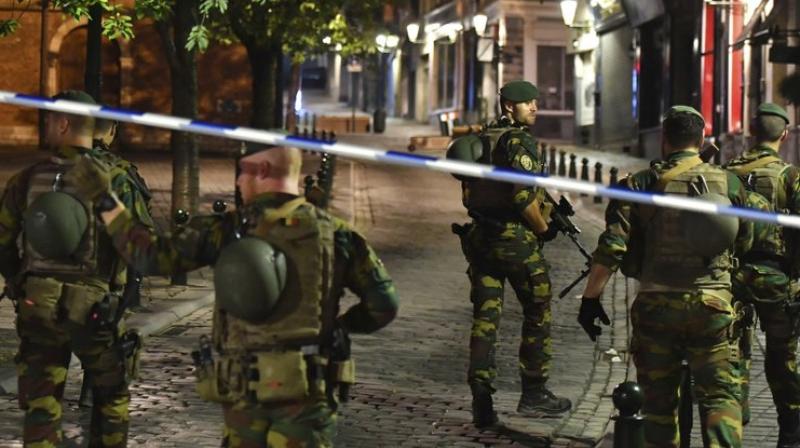Brussels station bomber identified as Moroccan with nail bomb

Brussels: Belgian security forces on Wednesday identified the man who set off an explosion at one of Brussels' busiest railway stations before soldiers shot him dead, in the latest attack to hit Europe.
Prime Minister Charles Michel said a "terrorist attack has been prevented" and that extra security measures would be put in place after the foiled attack on Tuesday.
The incident Tuesday evening at Brussels Central Station could have been much worse because the "big explosion did not happen," Interior Minister Jan Jambon said, adding that more details about the device would be released shortly.
"The terrorist's identity is known. We have been able to identify him," Jambon told RTBF radio and television, without giving his name.
Belgian media said the assailant was a 37-year-old man from the largely immigrant Brussels neighbourhood of Molenbeek, home to jihadists linked to previous attacks, and that police were carrying out raids there.
Witnesses said the suspect shouted "Allahu Akbar" (God is Greatest) before setting off the device, triggering a small but intense fireball in the station's underground hall. Soldiers at the station then gunned him down.
Crying rail passengers fled the station after the explosion, with memories still fresh of last year's metro and airport suicide bombings in the city which hosts the EU and NATO headquarters.
There were no other casualties apart from the suspect, who was confirmed dead by prosecutors, hours after the attack.
Jambon indicated that police had carried out searches once the attacker's identity was known. Belgian media said a bomb disposal squad van was present at the site of one of the raids.
- Alert level unchanged -
Belgium would keep its terror alert level at three on a scale of four, Michel said after chairing a meeting with his national security council.
Events in Brussels including a concert by rock band Coldplay were set to continue, although authorities said there would be extra security and warned people not to bring backpacks.
The busy Central Station in the heart of Brussels, which sits just beside the Grand Place, one of the city's main tourist attractions, reopened around 8:00 am (0600 GMT) Wednesday, railway authorities said.
The blast came a day after a man mowed down Muslims near a mosque in London, and a suspected Islamist on a terror watchlist rammed a car laden with weapons into a police vehicle in Paris.
Brussels has been on high alert since suicide bombers struck Zavantem Airport and the Maalbeek metro station near the EU quarter in March 2016, killing 32 people and injuring hundreds more.
The Islamic State group claimed responsibility for the attacks, which were carried out by the same Brussels-based cell behind the November 2015 suicide bombings and shootings in Paris which left 130 people dead.
- 'People crying, shouting' -
Initial reports said Tuesday's blast at Central Station could have come from an explosive belt but subsequent accounts suggested it may have been a suitcase on a trolley.
"This is considered as a terrorist attack," federal prosecutor's office spokesman Eric Van Der Sypt said at a news conference outside the station late Tuesday.
Belgian rail company spokeswoman Elisa Roux said "there were people crying, there were people shouting" after the explosion.
Witness Nicolas Van Herrewegen, a railway employee, said he had gone down to the station's mezzanine level after hearing somebody shouting.
"Then he yelled 'Allahu Akbar', and he blew up a wheeled suitcase," Van Herrewegen told reporters.
"I was behind a wall when it exploded. I went down and alerted my colleagues to evacuate everyone. He (the suspect) was still around but after that we didn't see him.
"It wasn't exactly a big explosion but the impact was pretty big. People were running away."
He described the suspect as well built and tanned with short hair, wearing a white shirt and jeans.
"I saw that he had something on him because I could see wires emerging, so it may have been a suicide vest," Van Herrewegen said.
Soldiers have been deployed at railway stations and landmark buildings in Belgium since the Paris terror attacks, when a link to Brussels was first established.
The country's law enforcement agencies and intelligence services came under intense scrutiny amid claims that a series of leads were missed after the Paris attacks that could have led to the Brussels bombers.

